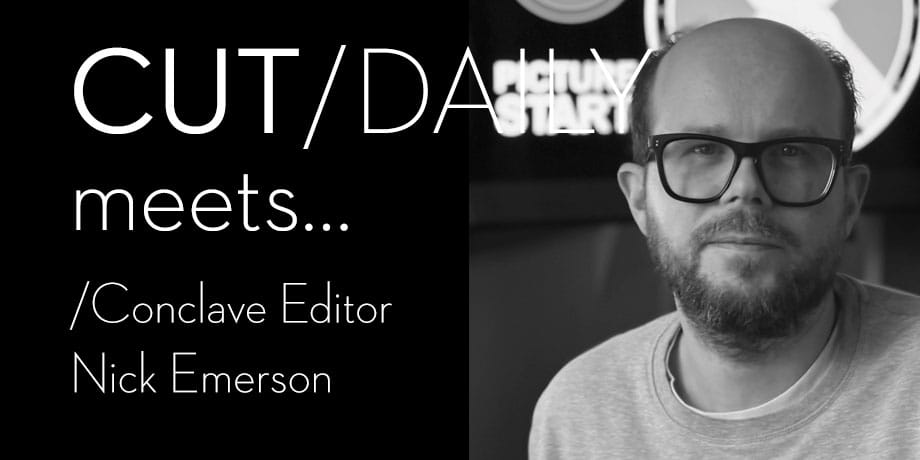#435 – Cut/daily Meets... (Oscar Nominated) Editor Nick Emerson

Conclave Editor Nick Emerson is nominated for the triple crown of editorial awards this season: the Oscar, the BAFTA and the Eddie.
According to the film's IMDB awards page, Conclave has received a staggering 294 nominations and already won 59 awards.
So I was delighted when Nick was able to answer my questions, and a few bonus ones, for this Issue of Cut/daily Meets...
My favourite things Nick had to share?
Double-check your work and remember that it’s usually better to “cut for a reaction, not a line.”
Plus, the approach of fine-cutting from the start sounds like a challenging thing to try!
Conclave is a remarkably tense thriller for a bunch of ‘old guys’ trapped in a building together. How did you build this tension in everything from performance selection to pacing the entire film?
A great script like the one that writer Peter Straughan gave us sets up drama and situations for us to exploit in both how you shoot and how you edit.
Tension is so much about context, what has come before and what the audience has been set up to expect.
Sometimes tension can be created by playing something out really slowly - the audience will know something is coming or by putting the audience on edge by jolting them with some unexpected edits.
We always wanted to keep tight control of the pace and this is something that you arrive at over time with repeated viewings and working through the cut. When viewing the film I try to ‘look beyond the cuts’ and follow what is being communicated and how quickly or slowly it is coming at you as an audience member.
This helps me figure out where we need to speed things up or slow things down.
Having edited for nearly 25 years, what did you learn on this film that was new to you? Or what insights from the previous 23 years helped save the day in the edit suite?
Director Edward Berger is very interested in the details of editing and from the start we worked to perfect every single cut even though we know it ultimately changes as the edit evolves.
Often, when you start editing a film, you rough cut–taking care, but working primarily on structure and story. On Conclave we essentially fine-cut from the start.
What I found helpful about this was that because we were focusing in on the detail I was able to park the side of my brain that was thinking about the big picture.
This meant when I came to review the film and the big picture after a period of work it felt very fresh and new.
Remaining objective and clear to the film is always a challenge when editing films - you may watch it 20 or more times - so I found this approach really helpful.
What was your process for working with the score (did you use temp or scratch tracks from the composer) and how did it shape the edit?
I tend to try not to add too much temp music in the early stages. I like to make the scene work as hard as it can before adding music.
Some sequences you have to though. I added little bits of temp but we had very little music on the film until composer Volker Bertelmann* started.
Generally speaking, we add music to the picture that is set and we tend not to adjust the picture in response to the music. It is always such an exciting time when Volker's cues come into the cutting room - the film’s tone starts to settle and his work is so inspiring.
(*Volker is nominated for Best Original Score this year too.)
